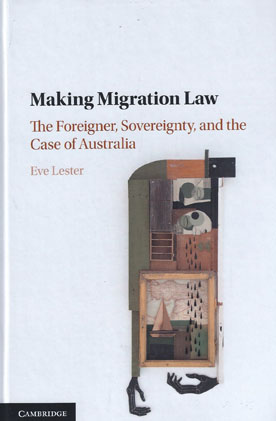We will be closed from 5pm Thursday 17th April for the Easter Bank Holidays, re-opening at 8.30am on Tuesday 22nd April. Any orders placed during this period will be processed when we re-open.

The emergence of international human rights law and the end of the White Australia immigration policy were events of great historical moment. Yet, they were not harbingers of a new dawn in migration law.
This book argues that this is because migration law in Australia is best understood as part of a longer jurisprudential tradition in which certain political-economic interests have shaped the relationship between the foreigner and the sovereign.
Eve Lester explores how this relationship has been wrought by a political-economic desire to regulate race and labour; a desire that has produced the claim that there exists an absolute sovereign right to exclude or condition the entry and stay of foreigners.
Lester calls this putative right a discourse of 'absolute sovereignty'. She argues that 'absolute sovereignty' talk continues to be a driver of migration lawmaking, shaping the foreigner-sovereign relation and making thinkable some of the world's harshest asylum policies.